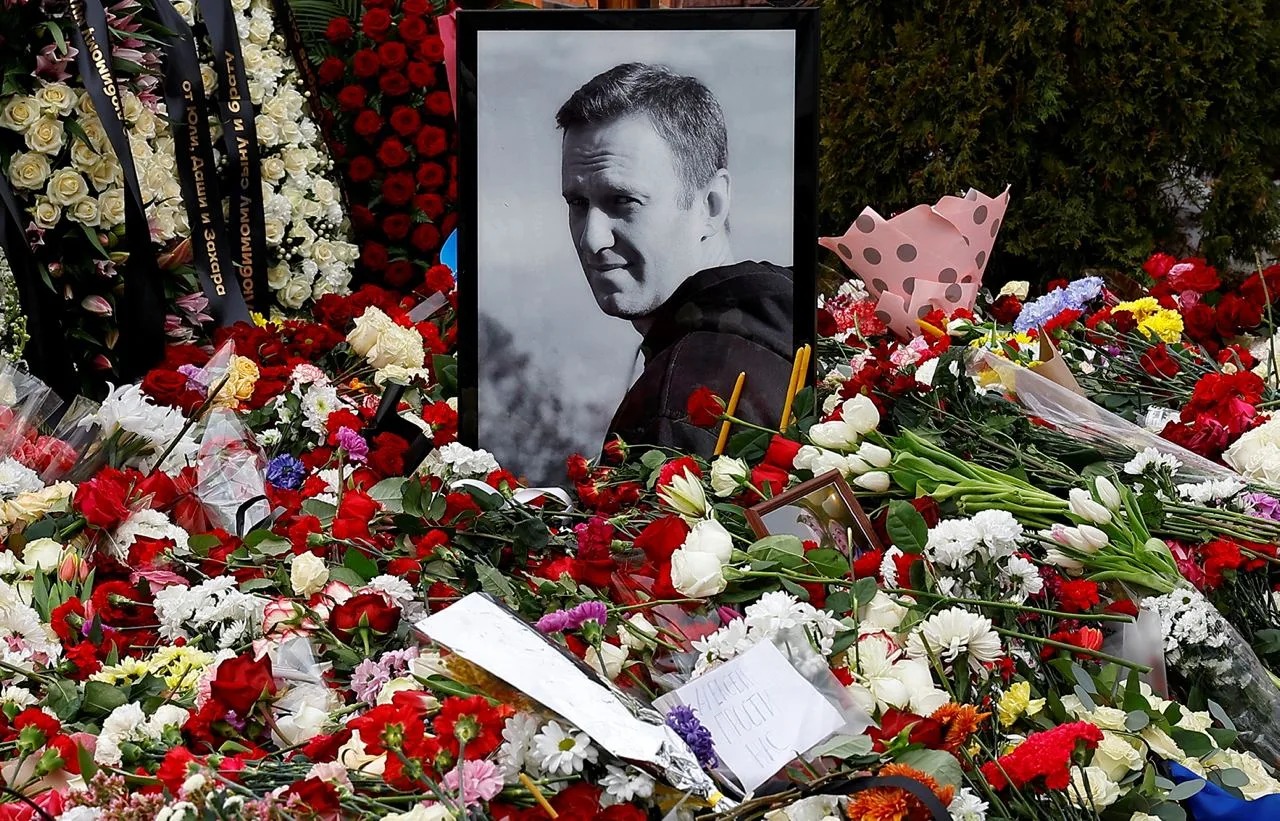Lyudmila Navalnaya and Alla Abrosimova, relatives of the late Russian opposition leader Alexei Navalny, joined mourners in Moscow to pay tribute at his gravesite on Saturday, following a significant turnout at his funeral which became a notable act of public dissent.
Despite the substantial police presence at the cemetery, the atmosphere remained peaceful, with law enforcement allowing individuals to pay their respects without haste, as the independent Russian TV channel Dozhd (Rain) reported.
In the wake of Navalny’s funeral, which saw thousands of supporters and mourners gather under strict surveillance, spontaneous memorials that sprang up in his honor faced destruction in several Russian cities, including St. Petersburg and Voronezh.
Navalny’s Mother Presents Flowers at His Gravel (Credits: Reuters)
These actions took place amidst a backdrop of widespread grief and unresolved questions surrounding Navalny’s sudden death in an Arctic penal colony two weeks prior.
The funeral, held in a southeastern suburb of Moscow amidst snowy conditions, drew large crowds who voiced their support for Navalny and their opposition to President Vladimir Putin and the conflict in Ukraine.
While the police refrained from intervening during the funeral, reports from OVD-Info, an organization monitoring political arrests, indicated that at least 106 individuals were detained across Russia, many of whom were stopped while attempting to place flowers at monuments commemorating victims of Soviet repression.
Navalny’s burial was conducted following a brief Russian Orthodox ceremony, with a vast number of people gathered outside the church and later visiting the grave to leave flowers.
Navalny’s widow, Yulia, who was absent from the funeral, has publicly committed to continuing her husband’s legacy and expressed gratitude for their years together.
The circumstances leading up to the funeral were fraught with challenges, including difficulties in securing the release of Navalny’s body and finding a Moscow church willing to host the service for the prominent figure who had dedicated his life to fighting corruption and organizing large-scale protests.
Navalny’s death has drawn condemnation from international leaders, many of whom hold the Russian government responsible, an accusation that the Kremlin vehemently denies.
